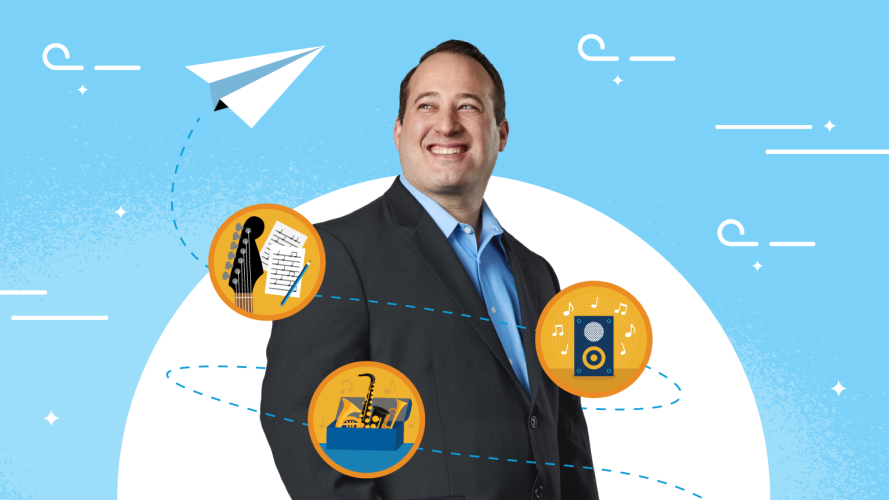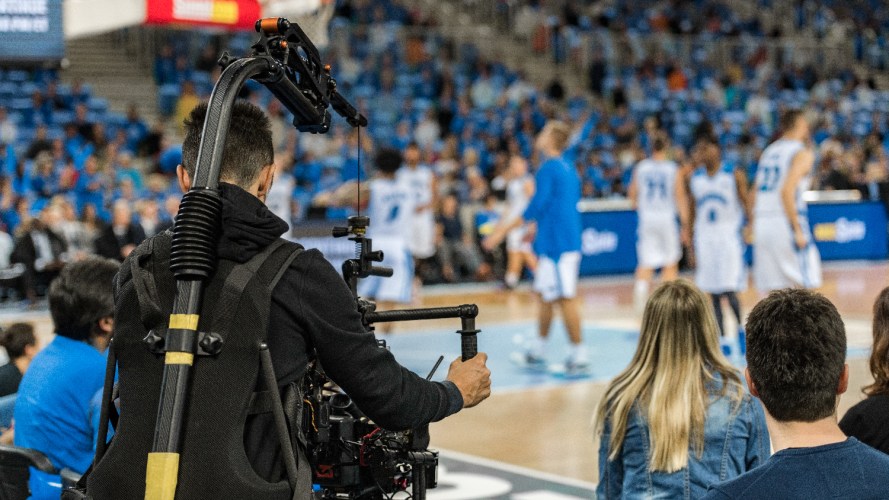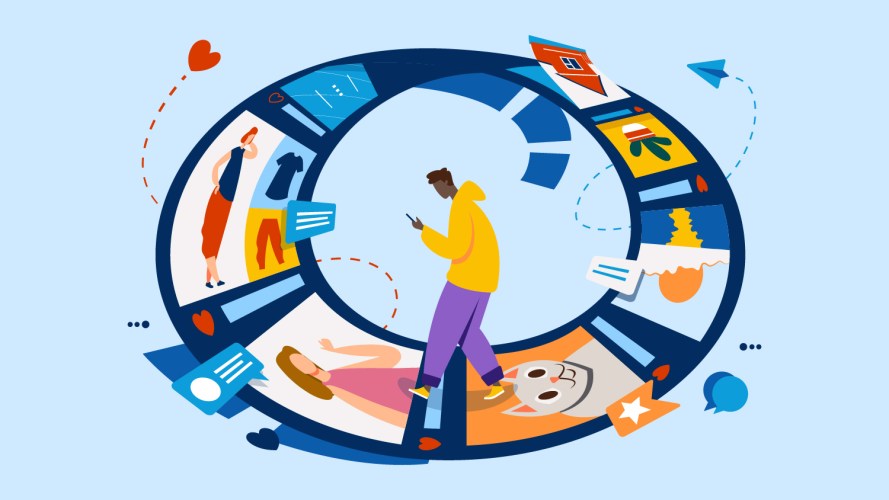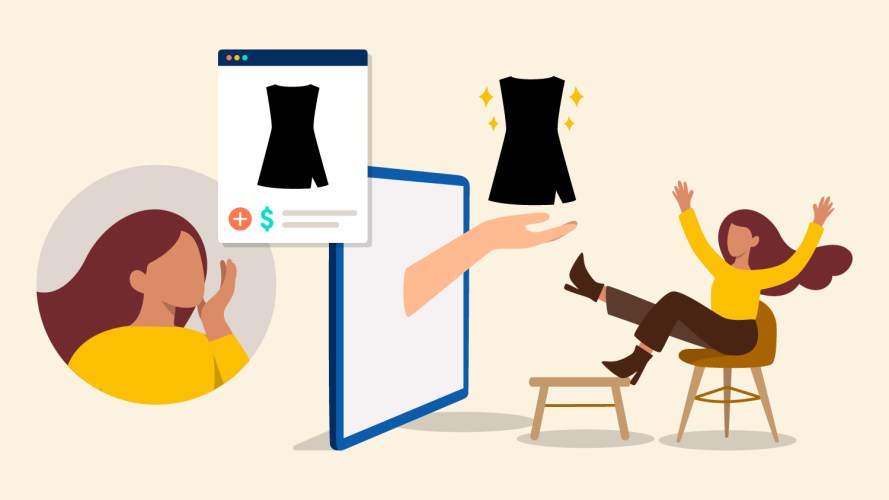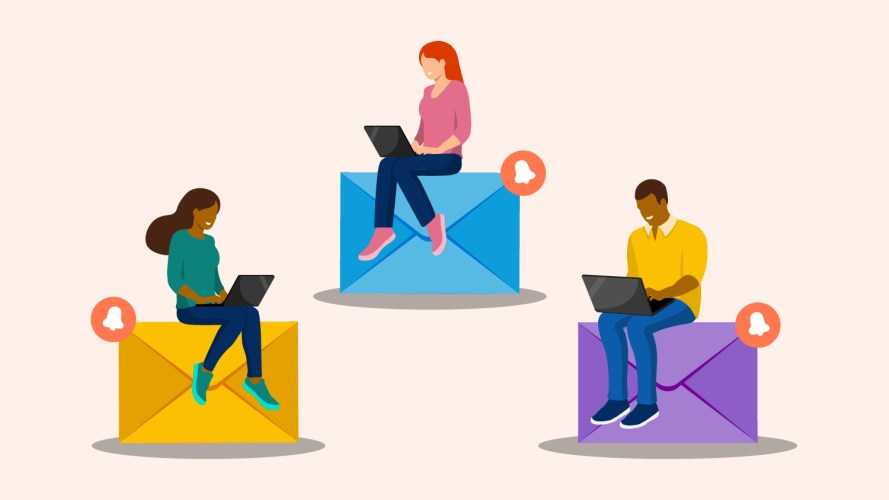How You Can Build Customer Loyalty with Conversational Marketing

See how brands are meeting customers where they already spend much of their time, on apps like WhatsApp, making it easier to respond in real time and quickly meet their needs.

Meredith Turner
For many years, brands talked at their customers instead of with them. Marketers told customers what they wanted, rather than asking them what they needed. Advertisers addressed everyone with a single campaign. Thanks to conversational marketing — connecting with customers through personalized, two-way conversations in real time — these “one size fits all” tactics are becoming a thing of the past.
Over the past two years, 68% of customers have purchased products in a new way, such as mobile ordering or shopping via social media. With the rise of these commerce innovations, customers now demand more convenient and interactive experiences with brands. Without it, they simply turn to other companies that can meet these expectations.
What’s up with WhatsApp?
Learn the basics of conversational marketing and discover how WhatsApp has become its most popular platform — for brands and customers alike.



Using a chatbot or a messaging app like WhatsApp, conversational marketing allows brands to meet these demands and expectations through one-to-one conversations with customers. Instead of spending hours, or even days, communicating with customers through email, companies can chat in real time — meeting customers where they are and solving their problems quickly.
For the customer, this is a convenient, interactive, and asynchronous experience that keeps them coming back for more. For the marketer, it’s a way to build customer loyalty and focus on long-term relationships, rather than single transactions.
Let’s break down three ways conversational marketing can help you.
Conversational marketing builds loyalty through customer convenience
Today, 75% of adults want to communicate with brands the same way they do with friends and family: through messaging.
They don’t want to wait on hold for 15 minutes for a customer service representative only to be asked to leave a callback number due to extensive wait times. They want their questions answered in real time and their needs met quickly. Simply put, they want convenience.
I recently had an impromptu movie night with friends. As any movie lover knows, the experience isn’t complete without your favorite food. My choice is always pizza, so I grabbed my phone to place an order with the nearest pizza place. I wanted to do so as quickly as possible without interrupting the group conversation or missing out on the next laugh.
Instead of calling the store and waiting on hold, I went to their website to find an ordering function via chat. After a few prompted questions, my pizza was ordered and minutes away from completing a fun night. In the same message I placed my order, I also received updates on delivery time.
From a customer perspective, the experience was seamless and painless. A brand that offers convenient solutions earns my loyalty. The next time I order pizza, I will be more inclined to return to the brand that provided an easy experience. I can trust them — right down to my last-minute pizza needs.
Quick tip: Don’t make your customers take cumbersome steps to get questions answered about your product. Keeping the conversation in one chat makes it quick, easy, and convenient for them.
Conversational marketing builds loyalty on the customer’s preferred channels
The best way to talk with customers is to meet them where they are. Let’s look at how one company did just that.
Serasa (Experian) is a credit reporting, credit granting, and credit management company in Brazil. With a large part of the Brazilian population in debt, Serasa supports its customers to renegotiate and improve their credit scores. However, they needed a more effective way to communicate, providing a better customer experience and improved employee efficiency.
Serasa turned to WhatsApp, Brazil’s most popular messaging app, to message customers about opportunities to renegotiate their debts. They used the conversational marketing method of texts, along with mobile notifications and email, to reach their customers on a platform they already regularly use. In doing so, they were able to:
- Boost engagement by 83%
- Drive 13x more conversions and when including WhatsApp in the journey
- Increase payment rates
- Improve operational efficiency with one platform and no-code tools
Serasa was also able to improve service level agreements (SLA), data residency requirements, and speed of innovation.
“Serasa is transforming how we communicate with customers,” said Patricia Camillo, Serasa’s manager, “by using WhatsApp to elevate the customer experience through personalization and a seamless experience that incorporates secure information.”
Quick tip: Be proactive in helping your customers interact with you. Set up that functionality in your app and let them know they should go there for an easy interaction.
See conversational marketing in action
Take your customer service to the next level with message-based product discovery and personalized messaging.



Conversational marketing builds loyalty by discovering customer preferences
Brands that factor personal preferences and behaviors into the customer experience will be rewarded with loyalty. The best way to discover customer preferences is simply through conversation.
Brands can quickly gather information about customer habits through messaging. What are their primary complaints? What are their likes and dislikes? What types of products have they purchased in the past — style, color, price point, etc? In what channel are they engaging and when? Do they respond to prompted messages or notifications?
Gathering this data allows companies to consider personal preferences when moving customers along the funnel. Analyzing these habits and acting accordingly can shape future product offerings and further personalize promotional messages.
Let’s say you’re a retail company that sells running shoes. A customer recently purchased a pair of shoes for their upcoming marathon, but upon receiving them, decided they were too bright. However, the customer is more comfortable trying to solve the issue on their own.
Rather than speaking directly to a representative, they start a conversation with a chatbot on your website. Chatbots use AI to understand what people are asking, and how to respond in a meaningful way.
Through the conversation, your company collected the complaint and the chatbot helped the customer with instructions for a return. Through AI, the chatbot resolved the immediate problem, allowing your representatives to focus on a customer that prefers support directly.
By collecting the data from this conversation, you can now also target the marathon runner with tailored, automated messages in the future — such as running products that offer more neutral options.
You can build trust when the customer feels heard. You earn loyalty when the customer feels known. Access to this critical customer data allows companies to anticipate what the customer needs before they know they need it — and it all starts with conversational marketing.
Quick tip: Consider your customer’s previous behavior when prompting them with new promotional messages or product offerings. Don’t just solve their problems. Take it one step further and use your conversations to anticipate their needs.
Brands today have an opportunity to change the way they create, manage, and nurture their relationships with their customers. According to today’s customers, conversational marketing is a great way to do it.
Start your conversational marketing journey
Get up to speed on how you can use channels like WhatsApp to form better connections with your customers.














